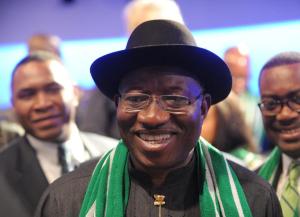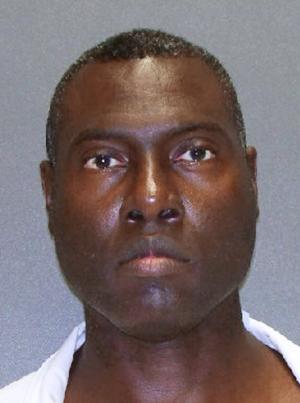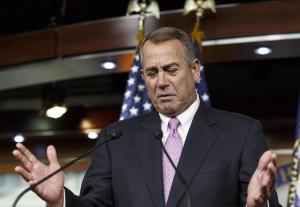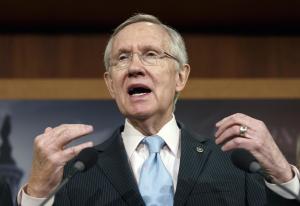JohnButts@JBMedia - Reports:
Israel has opened a new front in its attempts to halt weapons smuggling to Hezbollah, striking one of the
group's positions inside Lebanon for the first time since the sides fought a war eight years ago.
This week's airstrike, meant to prevent the Islamic militant group from obtaining sophisticated missiles, is part of a risky policy that could easily backfire by triggering retaliation. But at a time when the Syrian opposition says Hezbollah has struck a major blow for President Bashar Assad's government in neighboring Syria by ambushing al-Qaida-linked fighters there, it shows the strategic importance for Israel of trying to break the Syria-Hezbollah axis.
For now, the odds of a direct conflagration between Israel and Hezbollah appear low. The group has sent hundreds of fighters to Syria and is preoccupied with saving Assad's embattled regime. Syrian state media
reported that army troops killed 175 rebels, many of them al-Qaida-linked fighters, near Damascus on Wednesday, but the Britain-based Syrian Observatory for Human Rights, a prominent opposition group, said it was Hezbollah forces that carried out the dawn ambush. Israel considers both Hezbollah and the al-Qaida-linked Nusra Front to be grave threats. With a lack of good choices, Israel has avoided taking sides in the Syrian war, and in the short term, is content watching the two sides beat each other up. But in the long run, officials have expressed concerns about the battlefield expertise that Hezbollah has gained. Officials also
reported that army troops killed 175 rebels, many of them al-Qaida-linked fighters, near Damascus on Wednesday, but the Britain-based Syrian Observatory for Human Rights, a prominent opposition group, said it was Hezbollah forces that carried out the dawn ambush. Israel considers both Hezbollah and the al-Qaida-linked Nusra Front to be grave threats. With a lack of good choices, Israel has avoided taking sides in the Syrian war, and in the short term, is content watching the two sides beat each other up. But in the long run, officials have expressed concerns about the battlefield expertise that Hezbollah has gained. Officials also
suspect that despite repeated Israeli airstrikes on suspected arms shipments, Hezbollah has managed to get its hands on many sophisticated weapons, including Russian-made anti-aircraft and anti-ship missiles,
ensuring that any future conflict with Israel will be far more intense than previous rounds of fighting.
ensuring that any future conflict with Israel will be far more intense than previous rounds of fighting.
"The type of scenario we have to plan for is extremely robust," said an Israeli military official, speaking on condition of anonymity because he was discussing an intelligence assessment. "It means the Israeli
operational response has to be forceful, swift and decisive." Israel and Hezbollah, an Iranian-backed Shiite group committed to Israel's destruction, battled to a stalemate during a monthlong war in the summer
operational response has to be forceful, swift and decisive." Israel and Hezbollah, an Iranian-backed Shiite group committed to Israel's destruction, battled to a stalemate during a monthlong war in the summer
of 2006. Both sides have avoided any direct confrontation since a U.N.-brokered cease-fire ended the fighting, but each has been gearing up for renewed clashes.
missiles. These include weapons with longer ranges, guidance systems
and larger warheads, are capable of striking anywhere in Israel. The
weapons come from Syria and Iran.
and larger warheads, are capable of striking anywhere in Israel. The
weapons come from Syria and Iran.
"Iran is handing out torches to the pyromaniacs," Israel's military chief, Lt. Gen. Benny Gantz, said during a tour of the northern front this week. "I suggest that everyone keeps in mind that underneath this quiet, a storm is brewing." Israel believes Hezbollah has used the fighting in Syria as cover to transfer weapons back to Lebanon. Israeli leaders have repeatedly vowed to prevent Hezbollah from obtaining "game changing" weapons that could alter the current balance of power, and over the past year Israel has carried out a series of covert airstrikes in Syria that targeted shipments of weapons believed to be bound for Hezbollah. These included Russian-made anti-aircraft and surface-to-sea missiles, as well as advanced Iranian guided missiles.
Neither Israel nor Syria nor Hezbollah had confirmed any of the airstrikes, since going public might only escalate tensions. This changed after Monday's attack, the first inside Lebanon itself. The attack took place on a known smuggling route along the Syrian-Lebanon border, and a senior Lebanese security official said it targeted long-range surface-to-surface missiles from Syria heading to a Hezbollah depot in Lebanon's Bekaa region. He said one Hezbollah official overseeing the operation was killed. The official spoke on condition of
anonymity in line with regulations.
A senior Israeli official said Hezbollah does not seem "eager to ignite" the area, but that Israel was following its moves "very carefully." He said one likely scenario could be a Hezbollah attack on Israeli targets abroad. The group has been blamed for a string of bombings on Israeli tourists and diplomats in Asia and Europe, including a July 2012 attack in a Bulgarian resort that killed five Israeli tourists and a Bulgarian bus driver. He spoke on condition of anonymity because he was not authorized to talk to the media about the matter. Israeli
military officials said late Wednesday that the army had raised its alert level along the northern front with Lebanon. Israeli TV stations also said the military had moved a battery of its "Iron Dome" rocket-defense system to the area.
On Tuesday, Brig. Gen. Eli Sharvit, a senior naval official, told reporters the military operates under the assumption that Hezbollah now possesses Russian-made "Yakhont" anti-ship missiles, guided weapons
capable of striking targets up to 300 kilometers (200 miles) out at sea. This could put Israeli warships, as well as natural gas installations, at risk. Officials say it is possible that Hezbollah has obtained other sophisticated weapons as well. "We assume that what Syria possesses, Hezbollah has," he said. Yiftah Shapir, a former Israeli air force officer who is now a military analyst at the INSS think tank in Tel Aviv, said the fact that sophisticated weapons have made their way to Hezbollah does not mean the airstrike policy has failed. "You can't expect every strike to have 100 percent success," he said. Yet he said Hezbollah has transformed itself from a ragtag guerrilla group into a formidable fighting force. "These weapons though make it clear that since 2006 Hezbollah is no longer a terrorist organization, but an army and a well-equipped army," Shapir said.
capable of striking targets up to 300 kilometers (200 miles) out at sea. This could put Israeli warships, as well as natural gas installations, at risk. Officials say it is possible that Hezbollah has obtained other sophisticated weapons as well. "We assume that what Syria possesses, Hezbollah has," he said. Yiftah Shapir, a former Israeli air force officer who is now a military analyst at the INSS think tank in Tel Aviv, said the fact that sophisticated weapons have made their way to Hezbollah does not mean the airstrike policy has failed. "You can't expect every strike to have 100 percent success," he said. Yet he said Hezbollah has transformed itself from a ragtag guerrilla group into a formidable fighting force. "These weapons though make it clear that since 2006 Hezbollah is no longer a terrorist organization, but an army and a well-equipped army," Shapir said.








